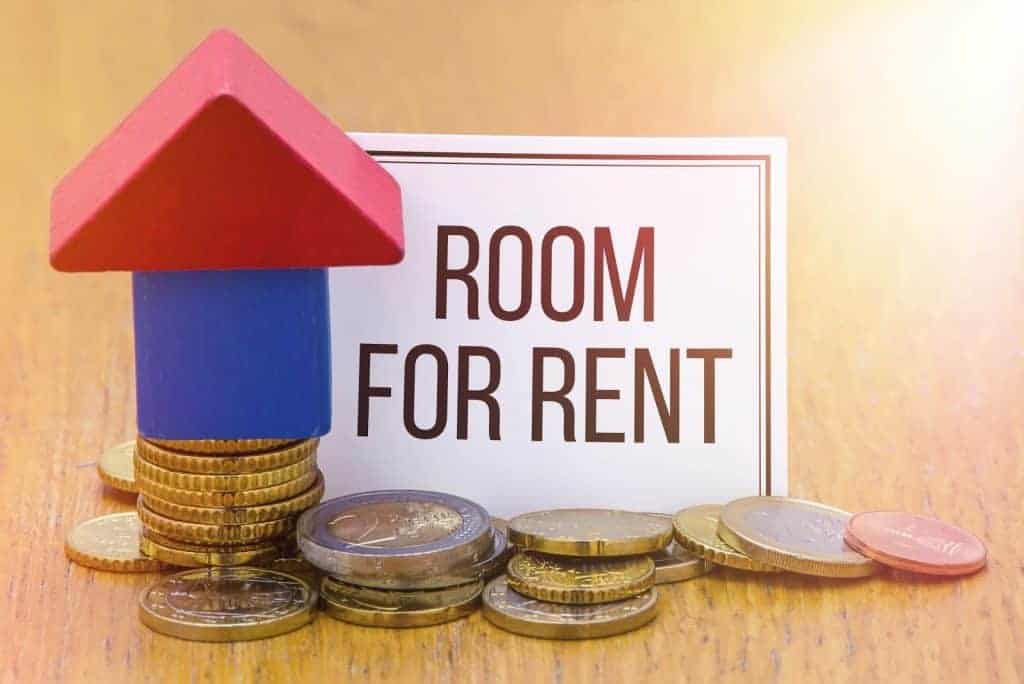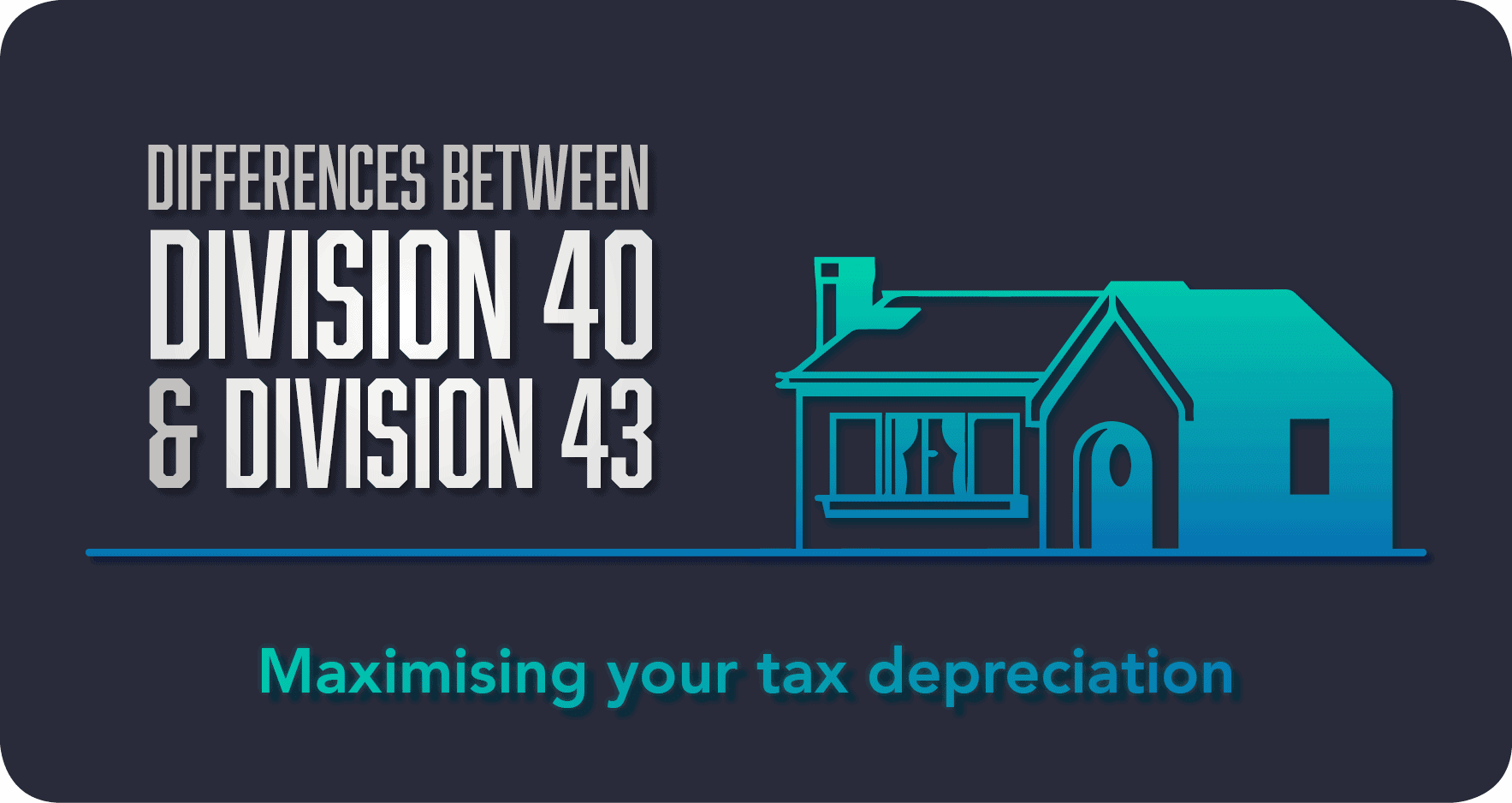You’re thinking about having your rental property become your main residence. But you aren’t sure if the decision comes with any tax consequences.
Will the move affect the tax deductions you claim? Is it possible to turn my rental property into my main residence and still rent a part of it out? Will you still be exempt from capital gains tax?
Don’t panic.
Here are a few of our tax tips to help you navigate through your potential move.
Having Your Rental Property Become Your Main Residence

Perhaps you’ve decided that you would like to retire in your investment property, or you’re a first-time buyer who couldn’t afford to live in the property yet but wanted to get into the property market early.
Either way, should you decide to have your rental property become your main residence, you will need to declare this for tax purposes.
In other words, you will need to disclose that your investment property is now your principal place of residence (PPOR).
It’s essential to make the declaration because how property is defined determines what tax deductions you’re entitled to claim.
What Is a PPOR?
The Australian Tax Office (ATO) considers a property to be your PPOR if you:
- live in the property;
- keep your personal belongings in the property;
- receive your postal mail at the address of the property; or
- have all the property’s connected utilities registered in your name.
Why Is It Important To Define Your Property?
Suppose you purchase an investment property to generate an income by renting it out.
In this case, the ATO allows you to claim the expenses you incur in managing your investment property against your rental income as a tax deduction.
These tax-deductible expenses include:
- repairs and maintenance;
- interest on the loan used to purchase your investment property; and
- council rates
For more on rental property deductions, read our ultimate guide here.
On the other hand, while your PPOR does have some tax benefits, you can’t claim the expenditure incurred from managing your own home, because you’re not generating any income for yourself from the house.
Thus, you have no income to offset the expenditure against.
Do I Qualify For Any Tax Benefits When My Rental Property Becomes Main Residence?
There is, however, some good news.
Once your rental property becomes your main residence, you may be entitled to a capital gains tax (CGT) exemption for the period that you live in your investment property.
What is CGT and How Does Living In My Investment Property Affect CGT?
According to the ATO, any profit on the sale of your investment property is considered a capital
gain and needs to be declared on your annual income so that the ATO can tax you accordingly.
There are, however, certain circumstances in which you can avoid paying CGT. These exemptions include:
- If your property is your PPOR.
- The CGT property six-year rule, which allows you to use your property investment as if it was your PPOR, for a period of up to 6 years whilst you rent it out.
- The 50% CGT discount if you’ve held your property for 12 months or more before selling the property.
- The six-month rule, which allows you to keep two PPOR’s if a new home is acquired before you dispose of your old home. In this case, you can treat both properties as your PPOR for up to 6 months.
So, if your rental property becomes your main residence and you declare it as your PPOR, you’re entitled to a full CGT exemption.
This exemption means you won’t have to pay any tax on the profit made from the sale of your property in the future.
Or, if your rental property becomes your main residence and you declare it as your PPOR, and then decide to move out again, you will be exempt from paying CGT for a period of up to 6 years.
What If I Want to Live In My Investment Property And Rent a Part Of It Out?
You may decide to have your rental property become your main residence and still rent out a portion of the property.
For example, you may have an extra room that you aren’t using and renting it out will help generate some more income. Or you may have a granny flat on the property that you can rent out.
If this is the case, you will be entitled to claim some of the rental expenses.
In other words, you can’t claim expenses incurred from the entire property, but you are entitled to claim a percentage of the property expenses because part of your property is now producing income.
Take note, however, that any domestic arrangements, such as allowing a friend or family member to live in a part of your property rent-free, does not entitle you any tax-deductible expenses.
The ATO suggests that you apportion the rental expenses incurred according to the floor space occupied by the tenant. You can, similarly, add a fair amount for the tenants’ access, where applicable, to any general living areas such as the kitchen, garage or outdoor areas.

Example:
In May 2020, Kyle decided to have his rental property become his main residence and declared it his PPOR after four years of renting it out.
There is a granny flat on the property which he has decided to rent out to generate some income from his property still.
The floor area of the granny flat amounts to one-fourth of the property’s area.
Kyle rented the property out to Brendon, who signed a 4-month rental agreement, for $125.00 per week.
During the rest of the year, Kyle’s sister, Sasha, lived in the granny flat rent-free until she was up on her own feet.
The total annual expenses for the property, including his loan interest, utilities and insurance, amounted to $12,000.
Kyle can apportion these expenses based on the floor area of the granny flat, which amounts to one-fourth:
$12,000 x ¼ (floor space of the granny flat) = $3,000
The apportioned expense amount is $3,000. Kyle can, however, only claim a deduction for the four months that the flat produced rental income:
$3,000 x 412(4 months of the year) = $1,000
So the total expense amount that Kyle can claim as a tax deduction is $1000.00 (one-third of the apportioned expenses).
What About Depreciation?
If you decide to have your rental property become your main residence and subsequently declare it your PPOR, you will no longer be eligible to claim any property depreciation deductions.
If, on the other hand, you decide to have your rental property become your main residence but still rent part of it out, the depreciation will count as a tax-deductible expense.
In that case, it would be helpful to have a quantity surveyor produce a depreciation schedule for you.
You can then have your accountant assess what percentage of the depreciation goes toward the part of the property that you use to generate income.
For more on quantity surveyors and depreciation schedules, read here.
Key Takeaways
If your rental property becomes your main residence and you declare it your PPOR, you can no longer claim the property’s expenses as a tax deduction.
You may, however, qualify for a CGT tax exemption.
You may also decide to have your rental property become your main residence and continue renting out just a portion of your property. If that is the case, then you may claim the property’s expenses apportioned to the part being rented out, as a tax-deductible expense.
For depreciation tax purposes, if you rent out part of your PPOR, it will be helpful to have a quantity surveyor produce a depreciation schedule so that you can see how much depreciation you are entitled to claim as a tax deduction.
Calculating what you can and can’t claim in different situations can be tricky. We always recommend that you work with an experienced quantity surveyor and tax agent to see how much you can save.
Get in touch with one of our Duo Tax Quantity Surveyors today to see how you can maximise your tax return.

Ready to get started?
Talk to one of our friendly property experts to get a free quote or more Information.









